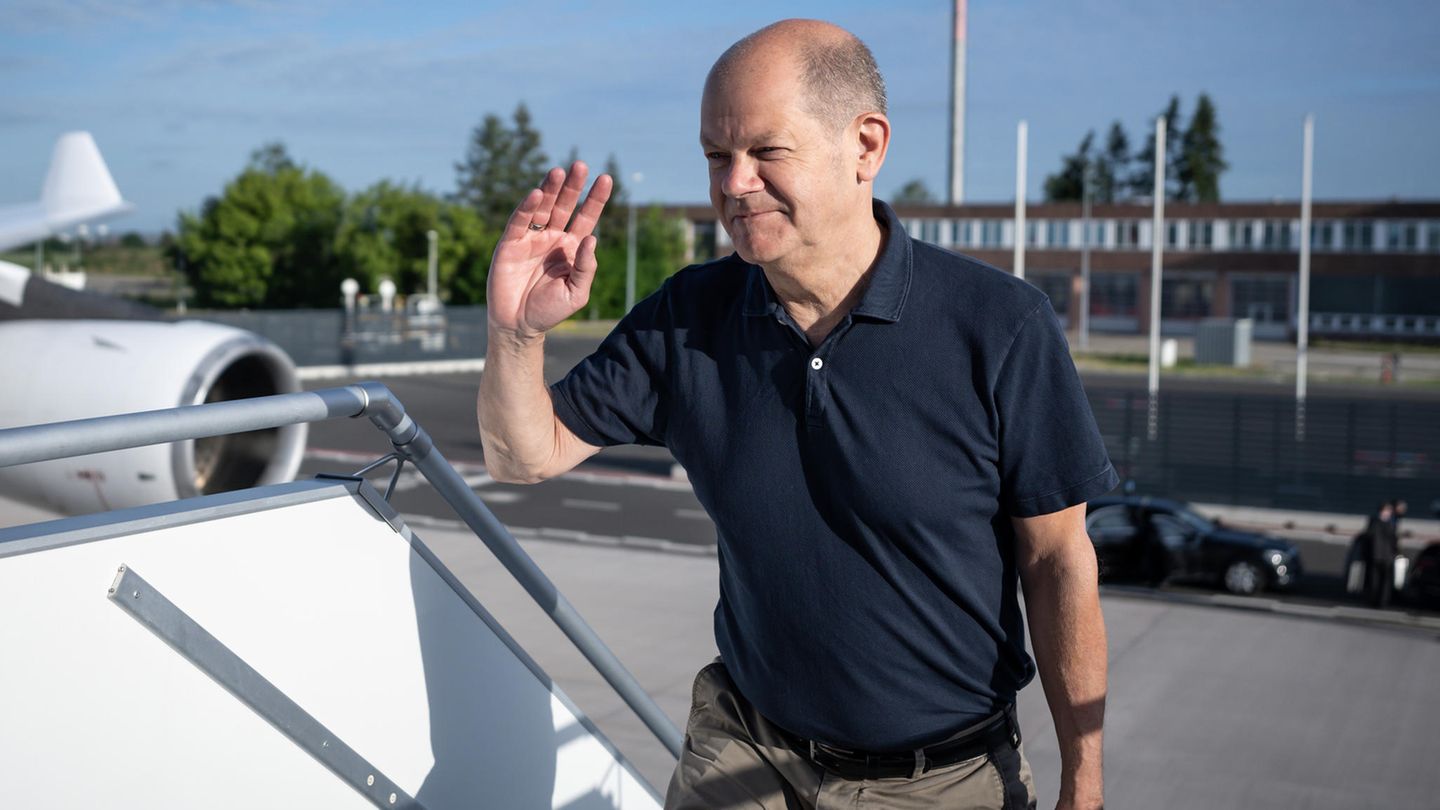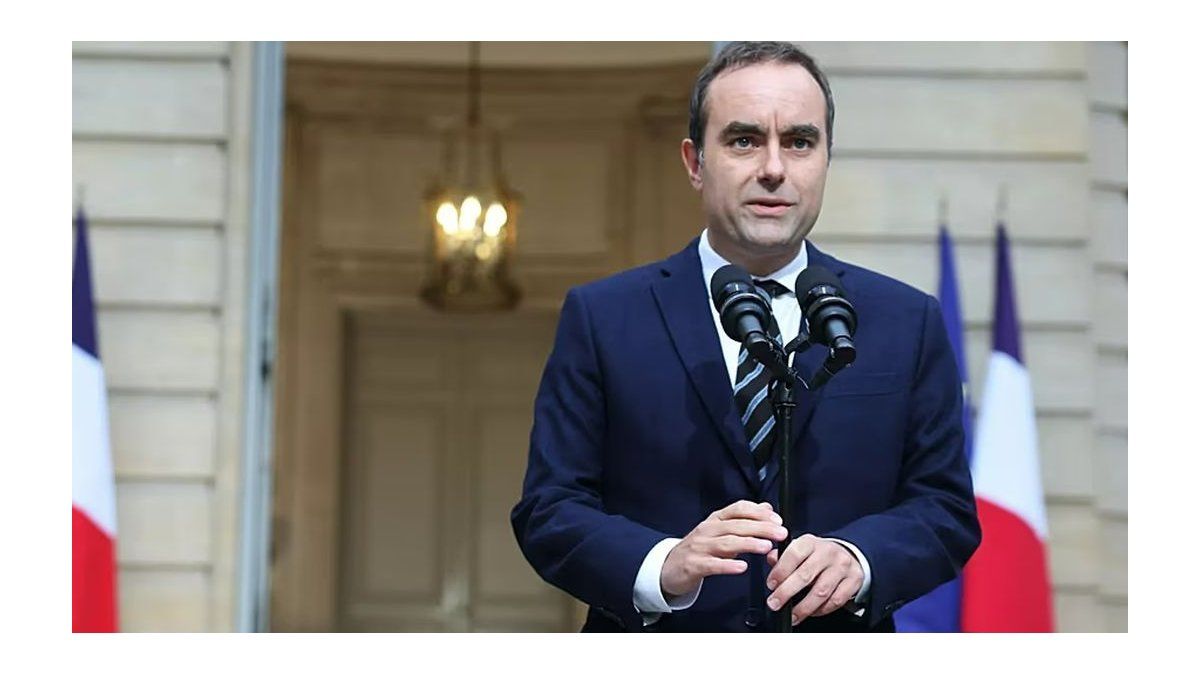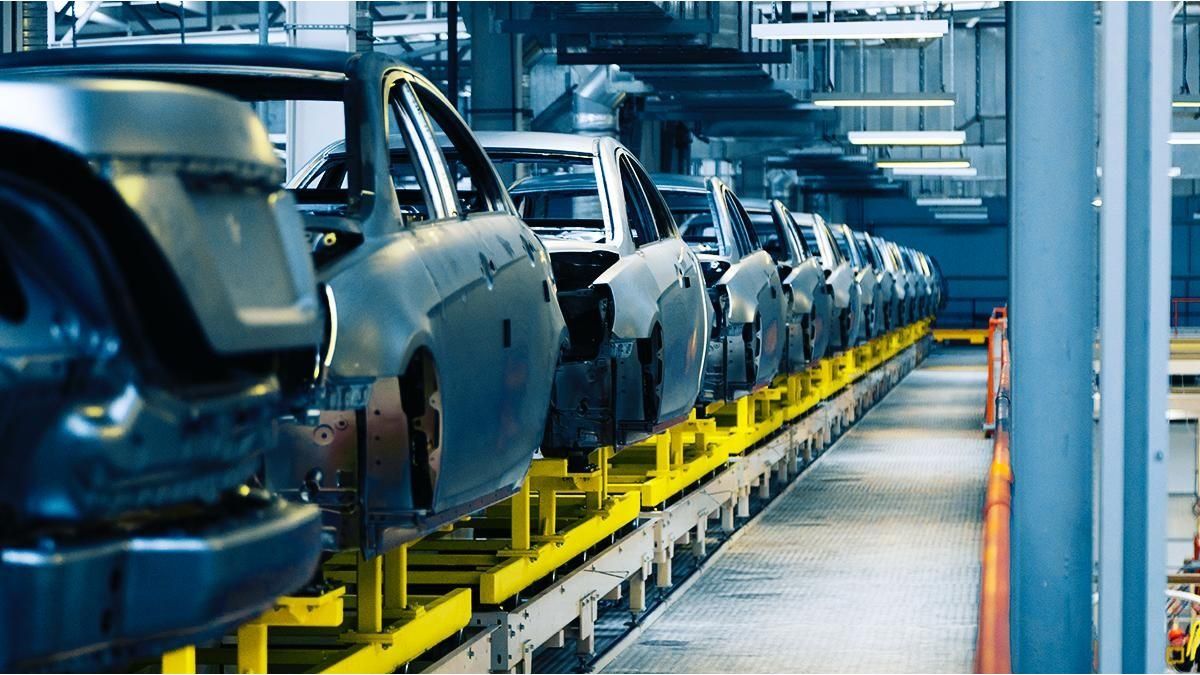USA, Israel, Japan: So far, Chancellor Olaf Scholz has only visited the closest partners outside of Europe. Now it’s off to Africa – a clear sign that the continent will not be forgotten even in times of war in Europe.
Almost half a year after taking office, Chancellor Olaf Scholz (SPD) set off on his first trip to Africa on Sunday. During his visits to Senegal, Niger and South Africa, the consequences of the Ukraine war will be discussed in addition to climate change, economic cooperation, the fight against pandemics and the strengthening of democracies on the continent. The Russian blockade of grain exports from Ukraine has exacerbated the food crisis, especially in East Africa. Nevertheless, some African countries are refraining from clearly distancing themselves from the Russian war of aggression.
Scholz visits the neighboring continent relatively early. His predecessor Angela Merkel (CDU) only embarked on her first longer trip to Africa two years after taking office. So far, the chancellor has only paid a visit outside of Europe to his closest allies: the USA, Israel and Japan. So now Africa – a signal that the neighboring continent should not be forgotten even in times of war in Europe.
Helpers expect “politics of equals” from Olaf Scholz
Aid organizations have high expectations. World Vision complains that from 2015 Merkel placed too much focus on “anti-migration”. “This has to stop,” demands Ekkehard Forberg, who is responsible for humanitarian crises at the organization. “We expect Chancellor Scholz to adopt a policy of equals.” Germany should not impose any “paternalistic solutions” on the continent, but let the countries develop their own concepts and then support them.
“Instead of investing so much in the partnership with business, more should be put into the state systems for health, education and social security,” warns Oxfam’s Tobias Hauschild. “In addition, more money should be made available for the lowest-income countries and gender equality should be promoted more.”
Senegal, Niger, South Africa: three countries in three days
The three travel destinations in Africa have been carefully chosen.
- Senegal currently chairs the African Union, the African EU counterpart with 55 member states. In addition to South Africa, India and Bangladesh, the country is one of the guest countries that Scholz invited to the G7 summit at Schloss Elmau in Bavaria at the end of June.
- Niger Unlike the neighboring country of Mali, the German government sees it as an “anchor of stability” in the Sahel region south of the Sahara, where various terrorist groups have been causing fear and terror for many years. While the Bundestag ended the Bundeswehr’s training mission in Mali on Friday, the training of special forces in Niger is continuing. Scholz gets an idea of the “Gazelle” mission – his first visit to troops abroad.
- South Africa is regarded as Germany’s key partner in Africa with close economic, political and cultural ties. It is also the only African member of the G20 of leading economic powers. The country is therefore set for a first chancellor’s trip to sub-Saharan Africa.
18 million people in East Africa affected by drought
The Ukraine war will also haunt the chancellor in Africa. “This war is a European war, but it is a war with global repercussions,” government circles say. This is shown by the current food crisis, which is hitting Africa particularly hard. Development Minister Svenja Schulze issued a clear warning at a G7 meeting in Berlin last Thursday: “As a result of Russia’s war of aggression against Ukraine, the global food situation has worsened dramatically. The worst famine since the Second World War is looming.”
The situation is most catastrophic in the Horn of Africa in Somalia, Ethiopia and northern Kenya. The rainy season failed to materialize in the region for the fourth time in a row. According to the UN emergency relief program OCHA, the region has been hit by the worst drought in 40 years, affecting more than 18 million people.
18 African countries voted against Russia resolution
During his trip, Scholz will also talk about why many African countries have so far refrained from clearly condemning Russia’s war of aggression against Ukraine. When the UN General Assembly voted to condemn the invasion, 141 of the 193 UN member states voted in favor and five against, including Africa’s Eritrea. In addition to China, India and Brazil, the 35 abstentions included 17 African countries, including South Africa and Senegal, two of the Chancellor’s target countries.
The voting behavior reflects the influence that Russia has on the continent. South Africa, the second largest economy in Africa, is linked to Russia in the Brics Confederation of States. Instead of a harsh condemnation of Russia, the Cape State calls for attempts to resolve the conflict through diplomatic channels. In addition to Russia and South Africa, the Brics group also includes Brazil, India and China, which has been expanding its role in Africa through investments worth billions since the turn of the millennium.
Soviet Union had supported independence movements
Although Russia is mainly active on the continent in the security sector (“Wagner mercenary group”) and in mining projects, as the successor state to the Soviet Union it enjoys a high level of sympathy there. The USSR had supported numerous African independence movements during the Cold War.
Against this background, Europe is trying to position itself as a privileged partner, but has so far been overshadowed by the Chinese. With its “Global Gateway” strategy, the European Union now wants to catch up and provide around 150 billion euros for infrastructure projects in Africa.
Source: Stern
David William is a talented author who has made a name for himself in the world of writing. He is a professional author who writes on a wide range of topics, from general interest to opinion news. David is currently working as a writer at 24 hours worlds where he brings his unique perspective and in-depth research to his articles, making them both informative and engaging.




